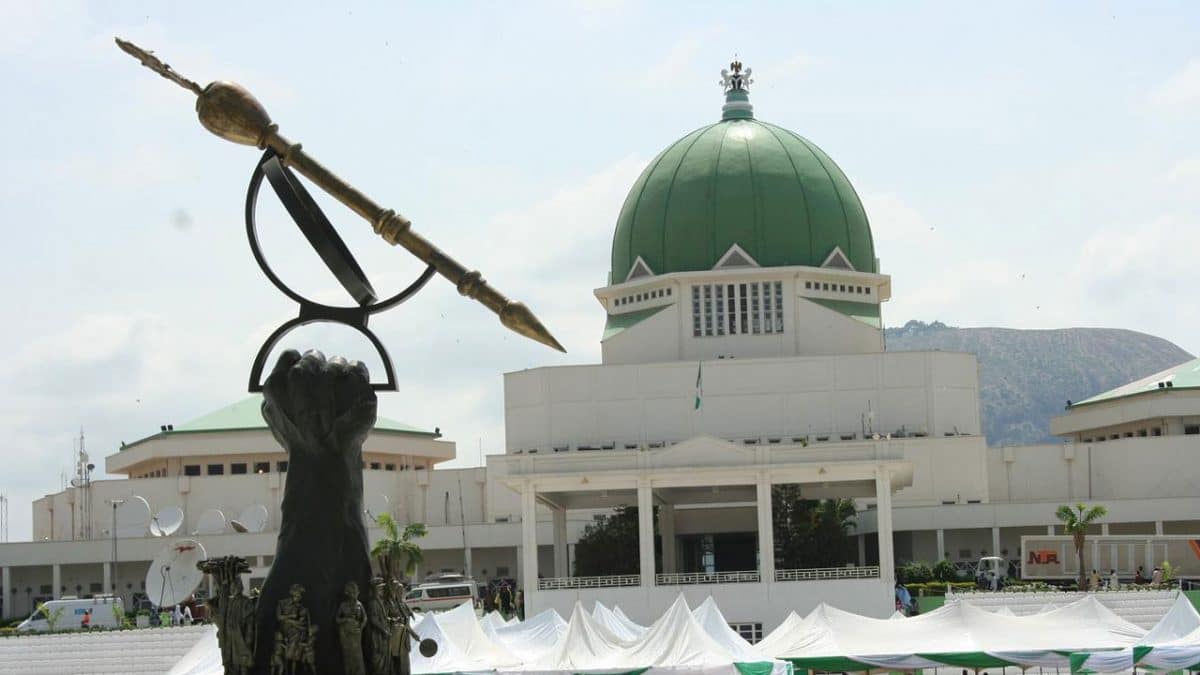Politics
Budget 2025: BudgIT, NASS in face off over inserted N6.93tn questionable projects

A storm is brewing over the 2025 national budget as civic technology organization, BudgIT has accused the National Assembly of inserting over 11,000 questionable projects worth N6.93 trillion
The group says the move undermines fiscal responsibility and the integrity of national development planning.
Lawmakers, however, have strongly denied any wrongdoing, asserting their constitutional authority to amend the budget.
In a detailed statement released on Tuesday, BudgIT claimed the 2025 Appropriation Bill had been significantly altered by the legislature, with projects allegedly not envisioned by the executive branch. These insertions, the organization said, run contrary to the Medium-Term National Development Plan (2021–2025) and appear to prioritize narrow political interests over national needs.
“The insertion of over 11,000 projects worth N6.93 trillion into the 2025 budget by the National Assembly is not just alarming, it is an assault on fiscal responsibility,” said Gabriel Okeowo, BudgIT’s Country Director.
“This trend, increasingly normalised, undermines the purpose of national budgeting, distorts development priorities and redirects scarce resources into the hands of political elites.”
According to BudgIT, 238 mega-projects, each valued at over N5 billion and totalling N2.29 trillion, were added to the budget with little or no justification. An additional 984 projects worth N1.71 trillion and 1,119 projects valued at N641.38 billion were reportedly inserted without alignment to national priorities.
The organization noted that these insertions often serve political motives rather than public interest. A breakdown provided by BudgIT reveals:
– 1,477 streetlight projects worth N393.29 billion
– 538 borehole projects totalling N114.53 billion
– 2,122 ICT projects valued at N505.79 billion
– N6.74 billion earmarked for the “empowerment of traditional rulers”
Read also: Top 10 stories from across Nigerian Newspapers, Wednesday, May 21
Most notably, BudgIT alleges that the Ministry of Agriculture became a primary target for these insertions, with 39% of all added projects—4,371 in total—worth N1.72 trillion—inflating its capital budget nearly eightfold from N242.5 billion to N1.95 trillion.
The group also called attention to agencies such as the Federal Cooperative College in Oji River and the Nigerian Building and Road Research Institute, accusing lawmakers of using them as dumping grounds for unrelated, politically motivated projects.
“These are examples of agencies operating outside their mandates, managing projects unrelated to their statutory functions, and adding zero value to national development,” BudgIT stated.
Despite formally notifying the Presidency, Budget Office, and National Assembly, BudgIT said no institution has responded or taken responsibility for the alleged anomalies.
“Even more concerning is the silence from the Presidency, silence which, in the face of overwhelming evidence, amounts to complicity,” the group said.
BudgIT urged President Bola Ahmed Tinubu to assert stronger leadership in restoring transparency to the budget process and called on anti-corruption agencies such as the EFCC and ICPC to investigate.
Responding swiftly, both the Senate and House of Representatives dismissed the allegations as false and ignorant of legislative procedures.
Chairman of the Senate Committee on Media and Public Affairs, Senator Yemi Adaramodu (APC, Ekiti South), stated: “The 2025 Appropriation Bill was presented by the executive, interrogated, and passed based on the exact amount presented.
“The dark angels of falsehood and public discord are only interested in stirring disaffection against the National Assembly.”
On the House side, Clement Jimbo, Deputy Chairman of the Committee on National Planning and Economic Development, firmly rejected the accusations.
“I completely disagree with them (BudgIT). It is completely based on ignorance. The executive cannot send a budget of N50 billion, and we just approve N50 billion. It is practically impossible. If we did that, we would be reducing ourselves to mere rubber stamps.”
Jimbo emphasized that the National Assembly has exclusive constitutional authority to alter the national budget—including inserting, adjusting, or removing projects—based on its assessment of national and regional needs.
“The budget the Presidency sends to the National Assembly is called an estimate. It is not yet law until we pass it,” he said.
“If what the executive sends to us is not in tandem with the aspirations of Nigerians, we can change it. That power is the exclusive right of the National Assembly.”
However, BudgIT is calling for sweeping reforms in Nigeria’s budgeting process and urging the Attorney-General of the Federation to seek constitutional interpretation from the Supreme Court regarding the legislature’s appropriation powers.
“We urgently need transparency, constitutional clarity, and a return to evidence-based planning that puts citizens, not politics, at the centre of the budget,” said Okeowo.
“This is not merely about financial mismanagement, it is a matter of justice, equity and the future of accountable governance in Nigeria.”
BudgIT also encouraged citizens, civil society groups, and the international development community to press for accountability and ensure that future national budgets serve public interest over private ambition.
Join the conversation
Support Ripples Nigeria, hold up solutions journalism
Balanced, fearless journalism driven by data comes at huge financial costs.
As a media platform, we hold leadership accountable and will not trade the right to press freedom and free speech for a piece of cake.
If you like what we do, and are ready to uphold solutions journalism, kindly donate to the Ripples Nigeria cause.
Your support would help to ensure that citizens and institutions continue to have free access to credible and reliable information for societal development.




























